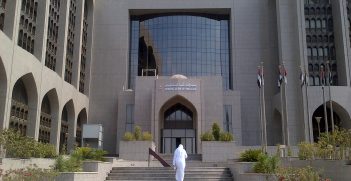Transparency in resource payments - why is Australia dragging its feet?

There’s a global move towards voluntary – even mandatory – reporting of financial flows to the community from the resources sector. But resource-rich Australia seems to be lagging behind.
No one can accuse the Australian Government of excessive haste in embracing the transparency movement sweeping the global mining industry.
While the Europeans and Americans, and even our major mining competitor, Canada, are all pushing forward rapidly on new measures to require transparency of financial flows in the mining industry, the Australian Government is still “considering” its position.
This is nearly a year after it received a report from an expert committee recommending Australian membership of the global Extractive Industries Transparency Initiative (EITI) – which itself was set up no less than three years earlier, in 2011, as part of a little remarked initiative of the Gillard era.
Amid this apparently complacent meander, the good news is that Canberra has at last released the expert report, providing the public with a detailed look at what EITI might mean for Australia http://www.industry.gov.au/resource/Programs/ExtractiveIndustriesTransparencyInitiative/Pages/default.aspx
The report is prepared by the Multi Stakeholder Group (MSG), a tripartite body with equal membership from the government sector (federal and state), the mining industry and civil society. On the basis of a pilot program, it recommends that Australia should move to implement EITI:
“Implementation of the EITI in Australia – a resource rich country in which extractive industries contribute much to national, regional and local economies – would greatly strengthen Australia’s transparency system, enhance its reputation and support the increasing number of Australian extractive companies operating in resource rich developing countries.”
EITI is a global standard for mining industry transparency, providing a unique tool to combat corruption and other symptoms of the ‘resource curse’, while also building the basis for communities to have an informed and trusting conversation about the size and purpose of revenues they earn from the mining industry. www.eiti.org
Currently, nearly 50 countries participate in EITI, mainly in sub-Saharan Africa, central Asia and South East Asia, there is a small but growing number of developed economies becoming involved, including Norway, the United Kingdom and the US.
EITI is a voluntary pact – mining companies disclose payments they make to governments, and governments disclose payments they receive from those companies. In many developing countries this is the first and only source of reliable information about the financial benefits of resource extraction, building confidence, and making it harder for those revenues to fly invisibly to offshore bank accounts and tax havens.
Alongside this voluntary initiative, several developed economies – including the UK, Canada, the EU and the US – are at various stages of implementing mandatory financial disclosures by mining companies.
Australia has made dilatory progress in both the voluntary and mandatory spheres. It is not an EITI candidate, let alone a full member, and appears mute on mandatory reporting. The risk of these delays is that – if and when Australia does participate – it will be too late to influence the reporting frameworks. They will have been shaped by our trading competitors instead.
The slow progress appears not to be the fault of Australian-based mining companies. As multinationals, they are already participating in transparent disclosure in other jurisdictions. The MSG had active participation by BHP Billiton, Rio Tinto, and the Australian arms of BP, Shell and ExxonMobil, along with the industry lobby group. As the MSG report acknowledges, industry benefits from a consistent approach to transparency through lower costs, better opportunities and improved market efficiency.
The source of resistance may lie within the government sector – specifically between the Commonwealth and the states. Queensland, South Australia and Tasmania were MSG members with WA observing, and according to the MSG report, the states were “initially concerned with how EITI principles might be applied in Australia,” proposing instead a light-touch overview of current reporting arrangements.
It seems certain that this would not pass muster with the global EITI movement, and the states seem to have been rolled.
Instead the MSG piloted an innovative and low-cost disclosure method. Rather than requiring every company to disclose every payment every year for review and validation – which is the basic EITI method – the MSG argues that Australia has a demonstrably strong system of transparency and accountability. It came up with an innovative sampling method: only a small proportion of tax payments by participating companies is disclosed, not the whole flow of revenues. The sample is drawn, and evaluated, by an independent administrator, which publishes its report, including any discrepancy.
But even here, the states are apparently still digging in. A spokesperson for the Department of Industry and Science confirmed that Canberra has been consulting “across the Commonwealth,” since state and territory support is necessary for any EITI-compliant process of verification of industry payments to governments.
Taxes sampled in the MSG trial are company tax, state royalties, the petroleum resources rent tax, North West Shelf petroleum royalties and excise, and the Northern Territory uranium royalty. Thus: no carbon tax, no Mineral Resource Rent Tax (both now abolished). Payments to indigenous communities, which the MSG asserts are “extensive” but difficult to verify, are also excluded.
This last point is significant and points to the major weakness of the MSG’s report. It is very strong on how EITI will benefit the mining industry, while being virtually silent on how it might benefit the Australian community. Civil society played a major part in the MSG, whose members included the Publish What You Pay (PWYP) coalition, Oxfam, Transparency International Australia and the relevant trade union, the CFMEU.
Yet civil society’s stake in mining transparency has been largely written out of the MSG’s report. This is a shame. EITI membership might provide a significant new source of data, and a significant new forum, to promote shared benefits of resource extraction – a highly desirable development when the Australian community is deeply divided over resource issues such as land use conflicts (for example, coal seam gas), proper pricing (for example, claims of an iron ore cartel), environmental impacts (especially reliance on brown coal) and inequality.
In a recent essay in The Monthly magazine indigenous leader Noel Pearson bemoaned the way in which traditional owners, whose rights were recognised in the Mabo decision of 1992, failed to “truly share” in the benefits of the resources boom which followed. http://www.themonthly.com.au/issue/2015/may/1430402400/noel-pearson/remote-control)
Yet the Minerals Council of Australia told the MSG that mining companies paid indigenous groups around $3 billion in 2011-12, including native title access payments, mining royalty equivalents, heritage payments, and payments under other agreements.
No side of this argument is right or wrong at this stage – but the community lacks transparency around the basic numbers.
Australia has proven itself a strong financial supporter of EITI, and has done a lot to encourage compliance by regional developing economies. But so far it baulked at bringing its own mining industry revenues into the EITI system.
The MSG has shown that it can be done and it should be done. The nation will benefit. Industry will benefit. And the Australian community will benefit. Further delay is unwarranted.
Dr Stephen Mills is the Lecturer in Public Management, Graduate School of Management, Faculty of Arts and Social Sciences University of Sydney. This article can be republished with attribution under a Creative Commons Licence.





